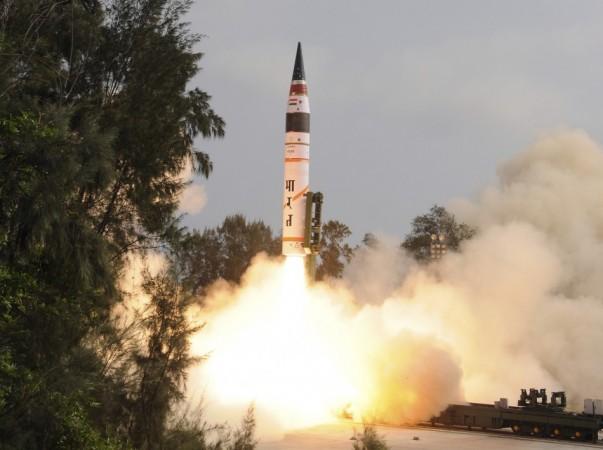
Pakistan's nuclear weaponry is primarily aimed at India, after the former was found accelerating its nuclear weapon production capacity and seeking circumstances to use them as a hedge against India's nuclear arsenal, Press Trust of India (PTI) cited a US report as saying.
"Pakistan appears to be increasing its fissile production capability and improving its delivery vehicles in order to hedge against possible increases in India's nuclear arsenal. Islamabad may also accelerate its current nuclear weapons efforts," the Congressional Research Service (CRS) said in a report.
Stoked by the belief that India may actualize military threats against the nation, Pakistan's nuclear weapons programme is a deterrent against any possible attacks from its counterpart, said the report dated June.
"Whether and to what extent Pakistan's current expansion of its nuclear weapons-related facilities is a response to the 2008 US-India nuclear cooperation agreement is unclear. Islamabad does not have a public, detailed nuclear doctrine, but its 'minimum credible deterrent' is widely regarded as designed to dissuade India from taking military action against Pakistan," the report added.
Pakistan has also executed new personnel security programmes along with improvements in the nuclear command and control structures in the past decade. The nation accelerated its nuclear efforts and began improving its nuclear security in 2004, after Pakistani nuclear official AQ Khan confessed to selling nuclear technology to other nations.
Over the years, Pakistan undertook several initiatives like strengthened export control laws, improved personnel security, and international nuclear security cooperation programmes to improve its security front, PTI cited the report saying.
Pakistan and India have long been at loggerheads over their respective nuclear weapons programmes, with some countries condemning the ballistic missile approach adopted by the two concerned nations.
Earlier in April, Austria criticized Pakistan's Shaheen 1A missile and India's Agni 5 flight tests in the same month. The Nuclear Threat Initiative organisation cited Foreign Minister Michael Spindelegger as saying on the matter that such a weapons race "would not only be a threat to stability in Asia but would also present a threat to global peace."
Though Pakistan and India have signed a pact notifying each other of any subsequent nuclear attacks, even arranging for disclosing secret sites and nuclear confidence-building measures (CBM), the two neighbouring countries have intensified the race for nuclear arms production.
Both Pakistan and India are estimated to have as many as 100 nuclear weapons in stock. According to website In Depth News, nuclear Hans M. Kristensen and Robert S. Norris said Pakistan is accelerating its arsenal production at a faster rate, and may have as many 200 nuclear weapons in the next ten years.

















